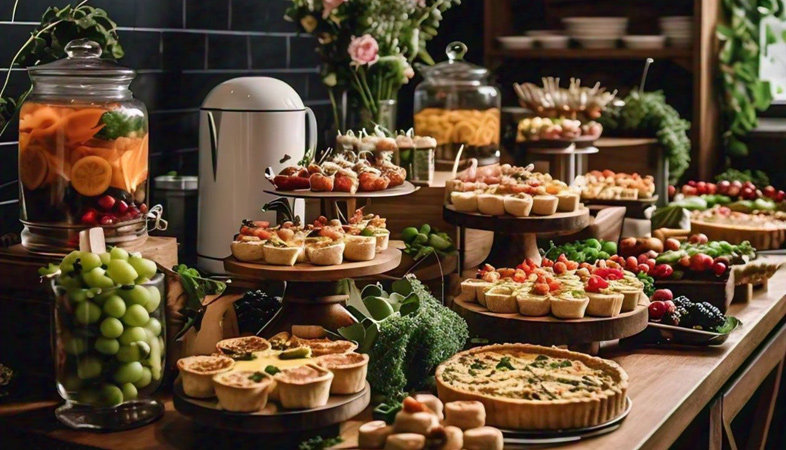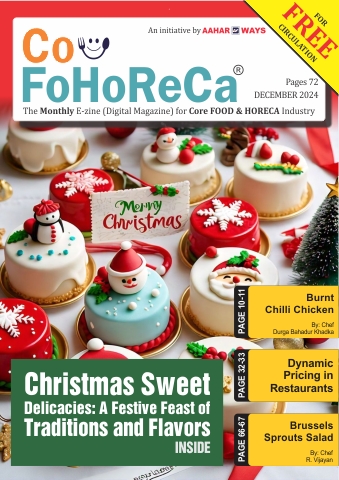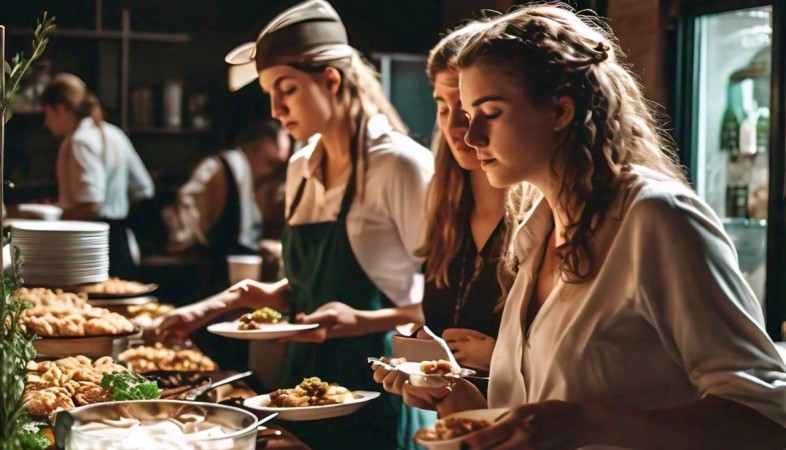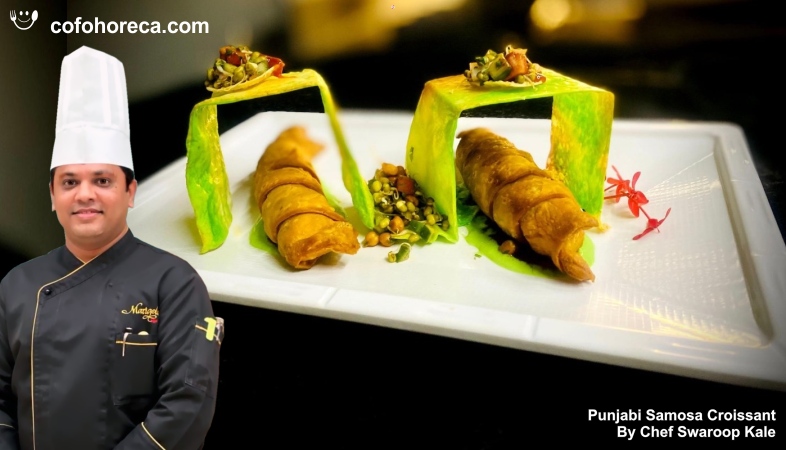Adapting to the Unpredictable: Catering for Weather-Dependent Outdoor Events
Caterers must navigate the complexities of planning menus and logistics that can be affected by rain, wind, heat, or cold.
Outdoor events have a unique charm, offering fresh air,
natural beauty, and a relaxed atmosphere. However, they come with their own set
of challenges, particularly when it comes to weather unpredictability. Caterers
must navigate the complexities of planning menus and logistics that can be
affected by rain, wind, heat, or cold. Successfully catering for
weather-dependent outdoor events requires flexibility, creativity, and a proactive
approach to ensure that guests enjoy a memorable culinary experience regardless
of the elements.
The first step in catering for outdoor events is thorough planning and preparation. Understanding the specific weather conditions of the location and the time of year is essential. Caterers should stay informed about seasonal patterns, local climate, and forecasted weather leading up to the event. This knowledge allows for the anticipation of potential challenges and the development of contingency plans. For instance, if rain is expected, having a backup plan for tents or an indoor location can prevent disruptions and ensure a smooth experience for guests.
Menu selection plays a pivotal role in adapting to unpredictable weather. Choosing dishes that are versatile and can withstand varying temperatures can help mitigate issues caused by the elements. For example, opting for room-temperature or chilled items can be more suitable for outdoor settings where heat or direct sunlight might affect food quality. Salads, charcuterie boards, and cold pasta dishes can provide refreshing options without compromising taste or safety. In contrast, if cooler temperatures are anticipated, incorporating hearty dishes like soups, stews, or hot entrees can create a warm and inviting atmosphere.
Another important consideration is the use of weather-appropriate ingredients. Seasonal produce not only enhances the freshness of the dishes but also aligns with guests’ expectations. Incorporating ingredients that reflect the season can help create a cohesive and enjoyable dining experience. For instance, summer events can feature vibrant fruits and vegetables, while fall gatherings can highlight root vegetables and comforting flavors. Using locally sourced ingredients can also add a unique touch, as guests appreciate the connection to the region.
Presentation and service style can also be adapted to outdoor settings. Buffets, food stations, and passed hors d'oeuvres can create an interactive dining experience while accommodating various weather conditions. For instance, if it’s a hot day, ice displays or chilled serving platters can keep food fresh and appealing. Alternatively, on cooler days, having warming trays or serving items that retain heat can ensure that dishes remain enjoyable throughout the event. Choosing appropriate serving ware, such as lightweight and durable materials, can also enhance the outdoor dining experience.
In addition to menu and presentation, addressing the comfort of guests is crucial. Weather conditions can significantly affect their enjoyment, so providing shade on sunny days or heaters on chilly evenings can create a welcoming atmosphere. Offering hydration options, such as infused water stations or refreshing beverages, can help guests stay comfortable in the heat. Conversely, providing cozy blankets or hot beverages can enhance comfort during colder events. Taking these additional steps demonstrates care and consideration for the guests' experience.
Communication with clients is essential in navigating weather-dependent outdoor events. Caterers should have open discussions about potential weather-related challenges and outline contingency plans in advance. This proactive approach allows clients to feel confident in the catering team's ability to adapt and ensures that everyone is on the same page. Establishing clear expectations for setup, service, and potential adjustments can help alleviate concerns and enhance collaboration.
Moreover, having a reliable team that is trained to handle the unique challenges of outdoor catering is crucial. Staff should be well-versed in the logistics of setting up in variable conditions and equipped to respond to any unforeseen circumstances. This may include training on food safety protocols, proper handling of equipment, and maintaining a positive attitude even in less-than-ideal conditions. A well-prepared team can make all the difference in executing a successful outdoor event.
Catering for weather-dependent outdoor events requires careful planning, adaptable menus, and a focus on guest comfort. By anticipating potential weather challenges, selecting versatile dishes, and maintaining open communication with clients, caterers can create memorable experiences that resonate with guests. A proactive approach to outdoor catering not only enhances the culinary experience but also demonstrates professionalism and dedication to ensuring the success of every event, rain or shine. Whether it's a summer wedding, a corporate picnic, or a fall festival, catering can turn unpredictable weather into an opportunity for creativity and innovation, ensuring that every outdoor gathering is a delightful celebration.
.png)





























